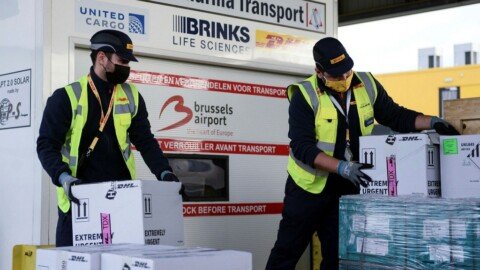DB Schenker India recently commemorated its 25th anniversary since its inception in 1996. Over the years, DB Schenker in India has undertaken various operations and expanded into an integrated logistics solutions provider for customers across verticals such as automotive, pharma, retail and consumer, industrial, electronics and aerospace. DB Schenker, the global leading logistics service provider, is a 100 % subsidiary of the German railway company Deutsche Bahn.
As part of the celebration, Schenker India engaged with the employees through fun in-house activities, organised a virtual event for awards and recognition as well as engaged with old veterans, who have significantly contributed to this journey.
Vishal Sharma, CEO of Cluster India and Indian subcontinent, DB Schenker said, “The last 25 years have been a success for DB Schenker in India and this milestone is a testament to DB Schenker’s resilient operations across India, even during tough times like the COVID-19 pandemic. India is one of the most important markets for us in the global network and our long-term planning for India will include expansion of Contract Logistics, increasing focus on SMEs among other initiatives.”
Schenker India offers a complete range of international air and ocean freight, contract logistics and global supply chain solutions. Strengthening its Contract Logistics operations in India, the company recently opened its largest warehousing hub in Badli, Gurgaon and in Air Freight, after connecting western India to the US & Europe via its Mumbai – Frankfurt – Atlanta weekly freighter, DB Schenker brings its second direct connectivity to the US (Chennai to Chicago via Munich) weekly thereby connecting the Automotive & Industrial verticals, other exports to Europe (Munich) and the Mid-west US(Chicago).
Additionally, the adoption of digital technology has always played a critical role for Schenker India. Today, it is one of the key strengths for the company as it offers digital solutions such as eSchenker and connect 4 ocean to help customers across verticals to customise their shipping services and keep real-time checks on the cargo. Further, the platforms simplify logistics management and help save time and reduce costs.







